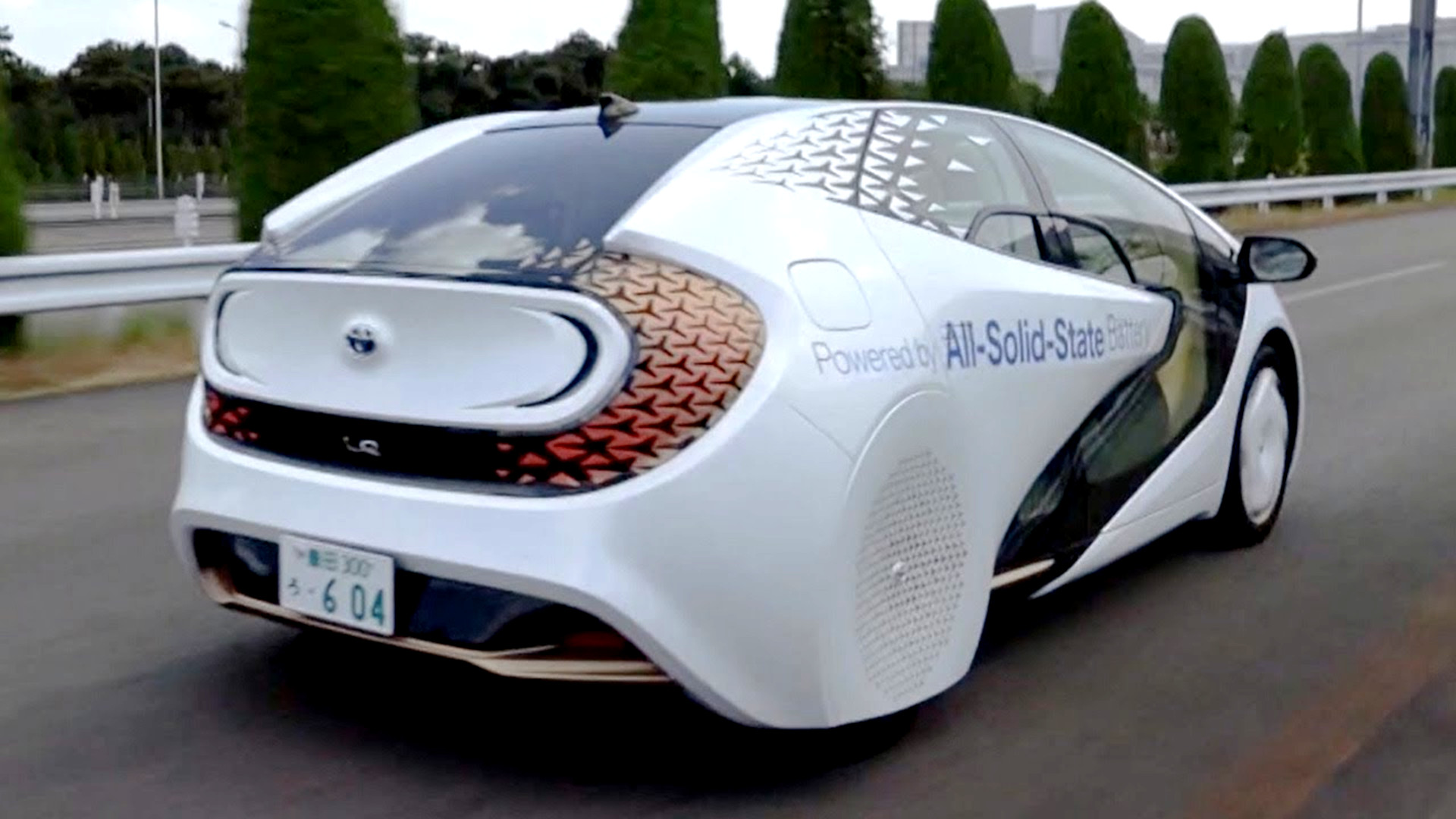

Despite being ahead of the curve with hybrids, Toyota has taken smaller steps towards the world of battery electric vehicles. That could be changing, however, with the company committing to spend $13.6 billion on battery technologies by the end of the decade. The company is investing not just in next-generation lithium cells, but also revolutionary solid-state battery technology. Toyota went so far as to give us a vanishingly short look at something special—a prototype vehicle actually running and driving with solid-state batteries.
The vehicle shown in the video appears to be a version of Toyota’s LQ Concept, which first debuted at the 2019 Tokyo Motor Show as an AI and self-driving demonstrator. Since then, it’s had a starring role in a series of commercials for the Tokyo Olympic Games. Thus far, it was simply reported to be a “battery electric vehicle” however in this release, it bears a large decal announcing its “All-Solid-State” battery. Far from a static model, the prototype was filmed driving down the road under its own power.

Rumors of Toyota revealing a prototype vehicle with solid-state batteries first dropped in late 2020, according to contemporary reports from Nikkei Asia. In today’s announcement, Chief Technology Officer Masahiko Maeda revealed that Toyota first built the prototype in June last year, driving the vehicle on a test course to collect performance data. Speaking to The Drive, Toyota’s Vice President of Mobility Communications Shiro Tachimoto stated that “Based on that data, we continued to make improvements, and in August last year, we obtained license plate registration for vehicles equipped with all-solid-state batteries and conducted test drives.”

It’s an exciting development, as solid-state batteries are a potentially game-changing technology. By replacing liquid electrolytes used in current batteries with solid material, the batteries are far less flammable which allows them to run in a wider temperature window. It’s thought that this could allow solid-state batteries to achieve greater power delivery as well as faster charging times, due to the lower risk of thermal runaway leading to fiery destruction. Additionally, there are potential gains to energy density too, which could lead to lighter vehicles with longer range.

However, solid-state battery technology has been a difficult nut to crack. Creating a solid-state battery that is robust, and can stand up to the rigors of automotive use has proven challenging. The new batteries must also hold up to repeated charge and discharge cycles without failure if they are to serve as a reliable power source for electric vehicles. In the same vein as their lithium-ion forebearers, there are also manufacturing issues to contend with. Hundreds of gigawatt-hours of battery capacity will be needed for future EVs, so companies must figure out how to produce high-performance solid-state batteries in huge numbers while keeping costs affordable.
Thus far, we’ve seen very few examples of running, driving vehicles powered by solid-state batteries, even in prototype form. Mercedes-Benz has developed the eCitaro bus to run on solid-state cells, however caveats in their care and maintenance keep them from being truly market-ready. Outside of that, most other manufacturers are yet to show their hands. BMW is betting heavily on the technology, promising only to reveal prototypes before 2025. Meanwhile, early proponent Fisker dropped its solid-state plans entirely earlier this year.
It’s an impressive feat for the Japanese automaker, and one that bodes well for its push towards solid-state technology in future. With reports the company wishes to launch a solid-state vehicle in the early 2020s, it has its work cut out for it. Whether it can master the cutting-edge technology before its rivals will be borne out in due time.
Got a tip? Let the author know: lewin@thedrive.com